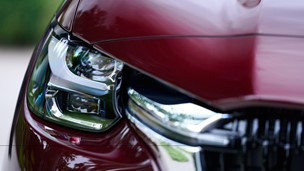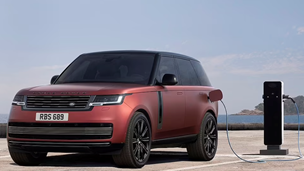Tempting as it may be to answer the phone that’s ringing on your passenger seat, don’t. It could get you into trouble, or even worse cause a horrible accident.
Admittedly, in today’s constantly connected world, it’s very hard to ignore our mobiles. They chirrup away, with phone calls and text messages now less prevalent than social media updates, making the temptation to ‘grab a quick glance’ at your screen even harder to ignore.
Do so at your peril, though, as the police are getting tougher…

What do I need to stay legal?
The only way you can legally use a phone in your car is with a proper hands-free kit that prevents you from having to touch the phone itself. Most new cars have Bluetooth connectivity at the very minimum, allowing you to sync your phone to the car via its onboard infotainment system.
If your car doesn’t have the ability to pair with your phone, you must use either a Bluetooth headset or hard-wired speaker phone connection, and your phone must be mounted safely on the dashboard or screen if you need to use it for sat nav instructions – whether you’re making a call or not, the law is very clear in its stipulation that you must not touch a phone handset while driving.
The main smartphone companies can also help – if you go into your phone’s settings, it will have a ‘Do not disturb when driving’ setting, which will automatically detect when you’re travelling in a car and prevent any calls, texts or app notifications coming through until you’ve reached your journey’s end.
When can I use a hand-held phone?
The only circumstance in which you can legally make a hand-held phone call from behind the wheel of your car is when calling the emergency numbers 999 or 112 to report an incident that requires urgent help from the emergency services, and it is not safe or prudent to stop your vehicle. This is the only mitigation that will ever be considered in law – there’s no other excuse.
If you need to take or make a call, the only other time you can do so from behind the wheel is if your car is safely parked, with the engine switched off. The definition of ‘safely parked’ must be acknowledged, though. Your car must be out of the way of traffic and not causing an obstruction, physical or visual, to other road users. Simply pulling into a bus stop to answer a call, for example, can still lead to prosecution.
What about if my car is stationary?
If parked as above, fine. But don’t be tempted to steal a look at your notifications or fire off a quick text to the other half while waiting at a red light, for example. Indeed, it’s major junctions and traffic lights where you’re most likely to get spotted, as you’re a sitting target. Penalty points and a big fine await…
Find great car prices today
Can I still be stopped if my phone is hands-free?
Yes. The laws on driving while on the phone are quite clear. If your phone is deemed to be causing any problems with the way you drive, such as distraction or loss of concentration, then you can and will be prosecuted. If you have an accident, the powers that be can also access your phone records.
What are the penalties?
Mobile phone use is seen as one of the biggest risks to road safety, so the resultant penalties are tough. If you’re caught red-handed using a mobile phone behind the wheel, you’ll instantly get six points on your licence, along with a £200 fixed penalty fine. If you’ve been driving for less than two years, the penalty is even worse – you get an instant driving ban. You can also be taken to court and fined up to £1,000.
Be careful with dash-mounted and screen-mounted kits, too, as if you don’t have a clear and full view of the road, you can be fined £100 and get three points on your licence.
Save money on your new car today



